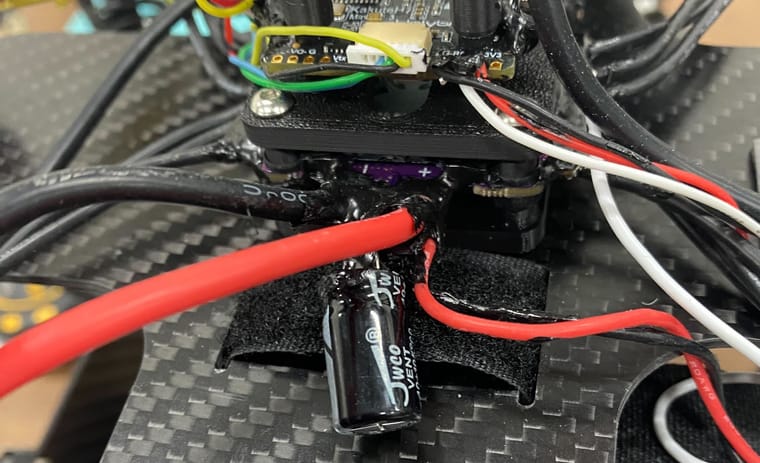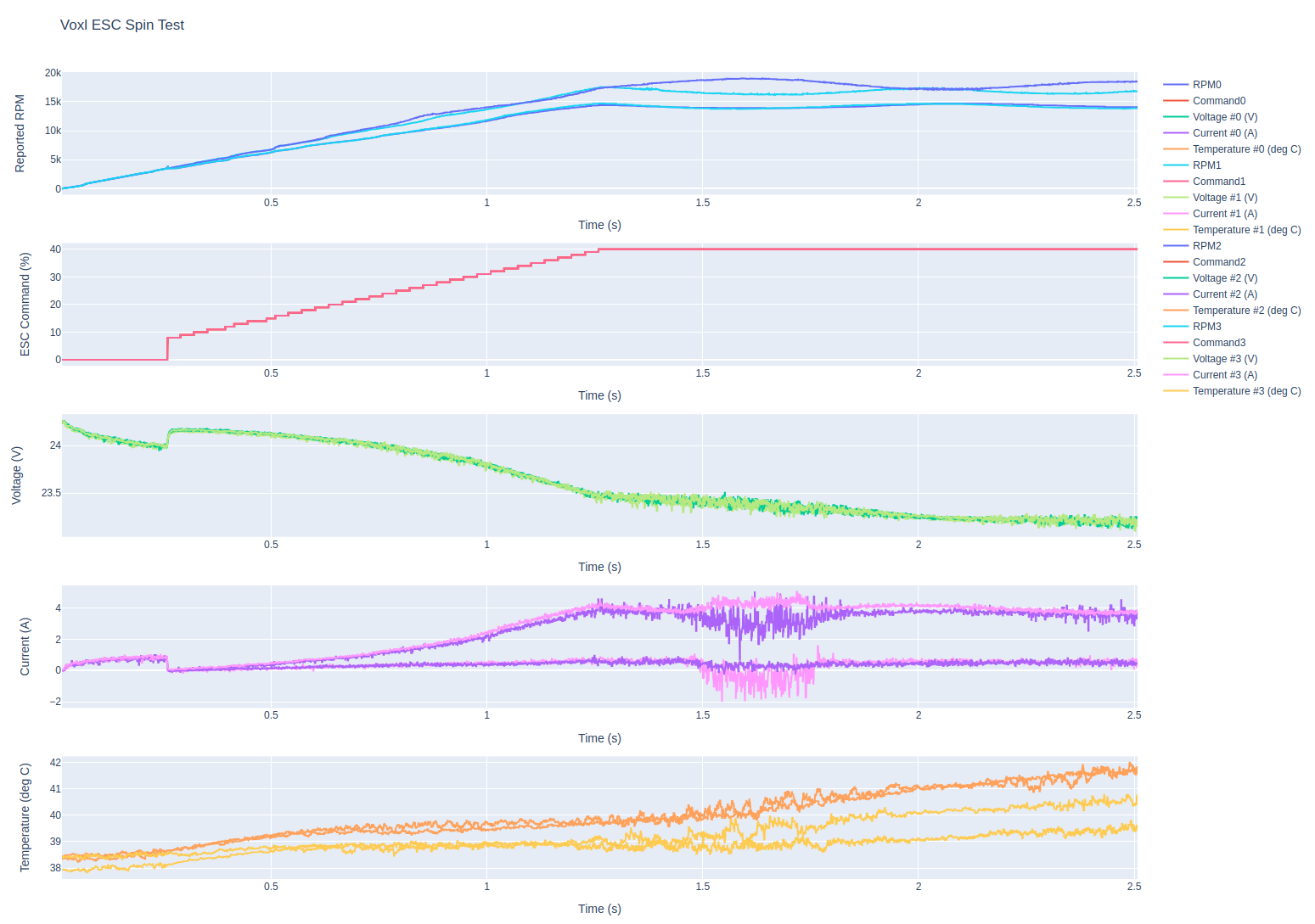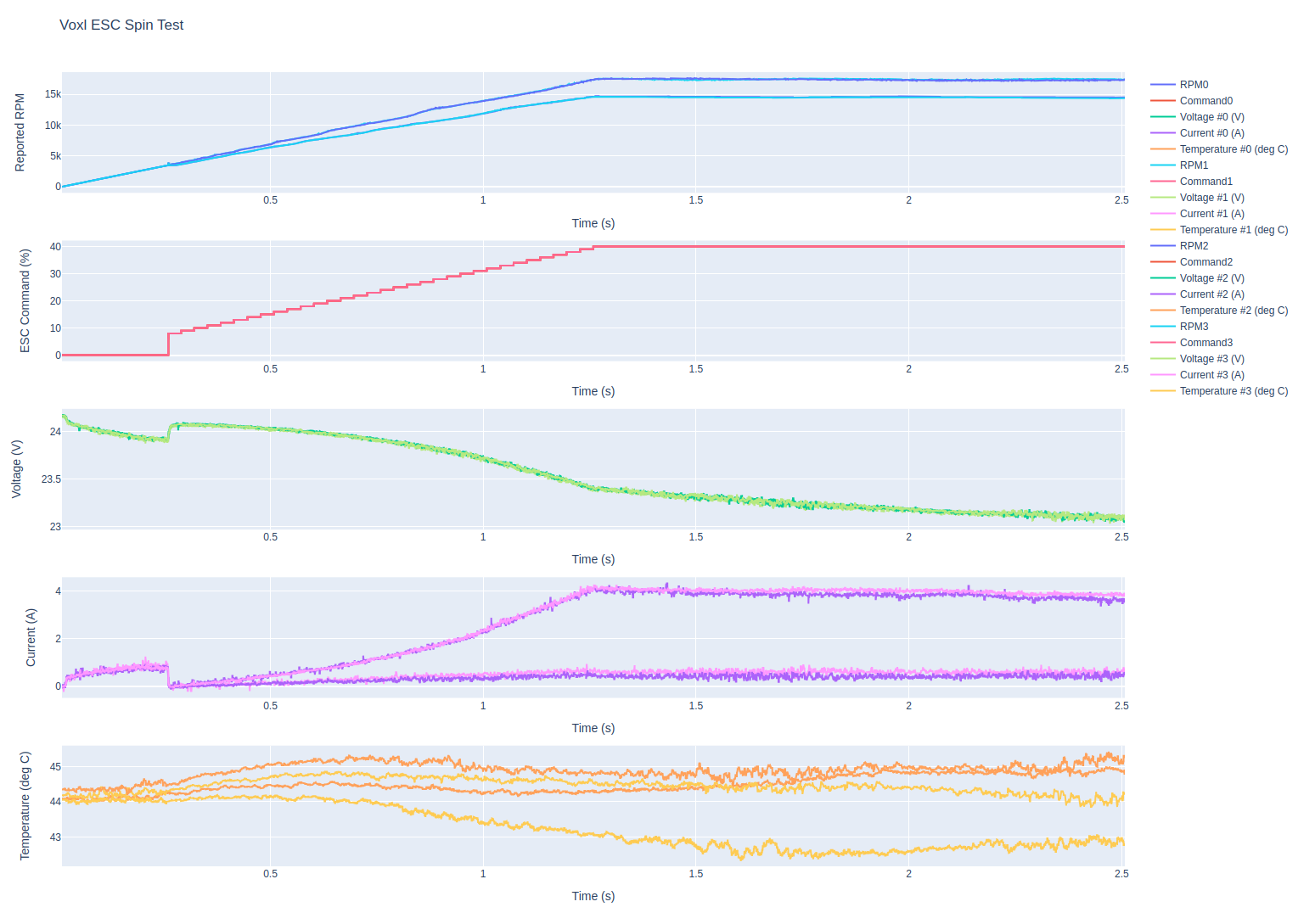Question About Installing Capacitors on ESCs for Testing
-
Hello, I have a question regarding ESCs. I'm wondering if it's okay to install capacitors like in this picture. I'm calibrating and testing the ESCs, but I'm experiencing motor heating issues and trying to troubleshoot. Typically, capacitors are installed on regular FPV drones, but have ModalAI tested with capacitors like this for testing? Is it okay to install them like this?

-
@dlee , yes you may install additional capacitor as you have shown, it should only improve performance in terms of making the commutations less jittery. Normally that is not an issue, but we require an external capacitor for 6S applications (when using M0134-6 ESC that is rated for 6S). The capacitor should be installed as close as possible to the ESC input power leads, just like you have in the picture. Make sure the capacitor is rated for at least 8-10V above the maximum battery voltage. (at least 25V for 4s applications or 35V for 6s applications)
-
@Alex-Kushleyev Thanks a lot!
-
@Alex-Kushleyev
Is a capacitor required for all ESCs on 6s? Or does the FPV esc (m0138) have a sufficient capacitor built in? -
@restore , M0138 has over 1000uF of capacitance on board, which is more than most 4-in-1 ESCs. It is usually sufficient for most applications. We do not use external capacitor for our internal testing on typical 6S 5” fpv platforms.
If you want to be 100% sure, it is worth testing using voxl-esc tools using step inputs on all 4 motors at the same time as the worst case scenario (while connected to the desired battery).
Insufficient capacitance can lead to noisy commutation timing, which can be observed by looking at RPMs and current measurements.
If you would like to know more information, i can share plots from M0134-6 without and with external capacitor. Maybe i can create a short document about it, if you are interested.
Alex
-
@Alex-Kushleyev
Thank you, mostly just wanting to be sure we weren't putting our ESC at risk. I'll look into running that test. We're running Tmotor 5006 450kv motors with 18" props, so there's a good bit more inertia. -
@restore If you are running large motors / props, i would recommend adding a nice capacitor just in case. (680uF or larger, low ESR). Just in case.
Here are two tests of M0134-6 ESC, one without capacitor and one with external 470uF capacitor. The test was a ramp test of 4 motors from 0 to 40% power, while 2 motors were loaded with propellers and 2 motors were unloaded (don't ask me why, just something i was testing at the time..)
Note that regular M0134 ESC, which is rated for 4S only, does not have an issue at 4S. When voltage is higher, such as 6S, there is a lot more switching noise, which can have an effect on ESC performance.
In the test without capacitor, you will notice current measurements becoming noisy and also RPM is not stable, almost wave-like. This means that the ESC was measuring very noisy motor timing and not able to hold a constant speed and constant input power.
You could conduct similar ramp tests (using
voxl-esctools), while vehicle is being tied down, so it does not fly off. Then observe the quality of RPM, current and voltage measurements. The command you can use is:./voxl-esc-spin.py --id 255 --init-cmd 10 --init-time 1.0 --power 60 --ramp-time 3.0 --timeout 4.0 --cmd-rate 1000 --enable-plot 1(using higher command rate to get more data for nice plots). You can vary the maximum power in the test as needed, maybe up to 90% for a stress test, but make sure 60, 70, 80 tests are fine first
 )
)test without external capacitor

test with external capacitor

-
@Alex-Kushleyev
Thank you for the thorough instructions. For now we're just going to install a cap to be safe. Hopefully we'll be able to run these tests some time in the future to build out our knowledge on the system. -
@restore , yeah, good plan..